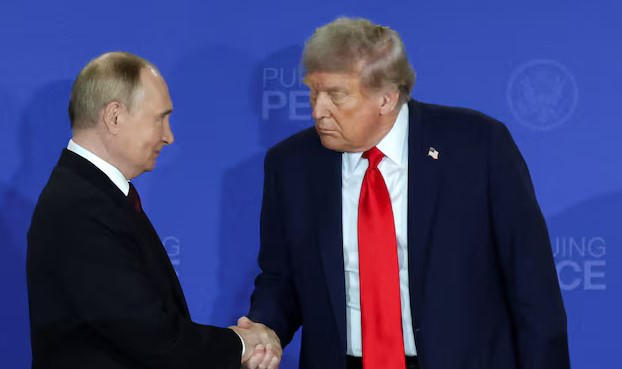Will Starmer Lead Labour to Victory in the Next Election?

Published: 2025-11-18 07:00:28 | Category: technology
Prime Minister Sir Keir Starmer has reaffirmed his commitment to lead the Labour Party into the next general election, emphasising the need for focus on the pressing cost-of-living crisis rather than internal leadership disputes. With a critical Budget scheduled for 26 November, Starmer is determined to ensure that Labour’s core values resonate throughout the government's fiscal plans.
Last updated: 26 October 2023 (BST)
What’s happening now
Sir Keir Starmer's leadership of the Labour Party is currently under scrutiny, following a YouGov poll indicating that nearly half of Labour voters believe he should resign before the next election. Despite this, Starmer remains steadfast, declaring his focus on alleviating the cost-of-living crisis, which he cites as the most significant concern for the British public. His statements come ahead of Chancellor Rachel Reeves's upcoming Budget, where she is expected to introduce various measures aimed at supporting households during this challenging economic period.
Key takeaways
- Sir Keir Starmer insists he will lead Labour into the next general election, focusing on the cost of living.
- A YouGov poll suggests significant discontent among Labour voters regarding Starmer's leadership.
- Chancellor Rachel Reeves is set to present a Budget on 26 November, with key decisions affecting public spending.
Timeline: how we got here
The current leadership tensions within Labour have escalated in recent weeks, particularly following the YouGov poll released on 20 October 2023, which prompted discussions about Starmer's future. Key dates include:
- 20 October 2023: YouGov poll reveals nearly half of Labour voters want Starmer to step down.
- 26 October 2023: Prime Minister's statements asserting his commitment to leadership and focus on cost-of-living issues.
- 26 November 2023: Expected Budget presentation by Chancellor Rachel Reeves, detailing fiscal strategies and measures.
What’s new vs what’s known
New today/this week
Starmer's recent comments highlight his prioritisation of the cost-of-living crisis over internal party disputes, a position he hopes will unify Labour as it approaches the Budget announcement. He has outlined potential measures such as freezing prescription charges and expanding free breakfast clubs for primary school children.
What was already established
It was previously established that Starmer faced leadership challenges and significant criticism from within his party. Allegations of potential leadership bids from cabinet ministers have circulated, although these claims have been denied. Starmer's commitment to addressing the cost-of-living crisis has been consistent, aligning with public concerns.
Impact for the UK
Consumers and households
The cost-of-living crisis remains a pressing issue for many UK households, with rising prices affecting everyday expenses. Starmer's focus on this issue is critical, as it aligns with public sentiment, particularly as the winter months approach. Measures such as freezing prescription charges could alleviate some financial pressures on families.
Businesses and jobs
Businesses are likely to be affected by the Budget's decisions, particularly regarding public spending and taxation. While there are indications that income tax rates may not rise, the chancellor has warned of "tough choices," which could impact business operations and employment levels across various sectors.
Policy and regulation
With the upcoming Budget, the Labour government will need to navigate a complex landscape of public expectations and fiscal responsibility. The focus on cost-of-living measures will be crucial for maintaining public confidence in Labour's ability to govern effectively.
Numbers that matter
- 48% of surveyed Labour voters believe Sir Keir Starmer should resign before the next election.
- Chancellor Rachel Reeves's Budget is set for 26 November 2023, with expected spending adjustments.
- Starmer emphasises the cost-of-living crisis as the "single most important issue" for Britons, reflecting public sentiment.
Definitions and jargon buster
- Cost of Living: The amount of money needed to maintain a certain standard of living, typically measured by expenses for essential goods and services.
- Chancellor of the Exchequer: A senior UK government official responsible for economic and financial matters, including the Treasury.
How to think about the next steps
Near term (0–4 weeks)
In the immediate future, the upcoming Budget on 26 November will be crucial in determining Labour's fiscal direction and how it addresses the cost-of-living crisis. Stakeholders will closely watch for measures that may directly impact households and businesses.
Medium term (1–6 months)
Over the next few months, the effectiveness of the Budget measures will become clearer. Starmer's leadership will be tested as public reactions to economic strategies unfold, particularly in light of any potential leadership challenges.
Signals to watch
- Public opinion polls regarding Starmer's leadership and Labour's popularity.
- Reactions to the Budget from key sectors, including consumer advocacy groups and businesses.
- Statements from party officials regarding internal leadership dynamics.
Practical guidance
Do
- Stay informed about the Budget proposals and how they may affect your finances.
- Engage in discussions about the cost-of-living crisis to better understand its impacts.
Don’t
- Ignore signs of discontent within political leadership, as these can impact policy direction.
- Assume that internal party conflicts will not affect broader economic strategies.
Checklist
- Review your household budget and adjust for potential changes in costs.
- Monitor news for updates on the Budget and its implications for public services.
- Consider how changes in economic policy may affect your employment or business.
Risks, caveats, and uncertainties
While Starmer's commitment to addressing the cost-of-living crisis is clear, uncertainties remain regarding the effectiveness of upcoming Budget measures. Additionally, ongoing leadership challenges within Labour could shift focus away from policy implementation. The political landscape is fluid and may change with new developments, particularly if public sentiment continues to sway against Starmer.
Bottom line
Sir Keir Starmer's insistence on leading Labour through the next general election underscores his focus on crucial economic issues facing the country. As the Budget approaches, the effectiveness of Labour's response to the cost-of-living crisis will be pivotal in shaping public perception and the party's future. Stakeholders should remain vigilant in monitoring developments within Labour and their implications for the broader UK economy.
FAQs
What is the main focus of Sir Keir Starmer's leadership currently?
Sir Keir Starmer is primarily focused on addressing the cost-of-living crisis, which he identifies as the most important issue for Britons today.
When is the Chancellor's Budget presentation?
The Chancellor's Budget is scheduled for 26 November 2023, where key fiscal measures will be discussed.
What has the recent YouGov poll indicated about Starmer's leadership?
A recent YouGov poll revealed that nearly half of Labour voters believe Sir Keir Starmer should step down before the next election, reflecting concerns about his leadership.



